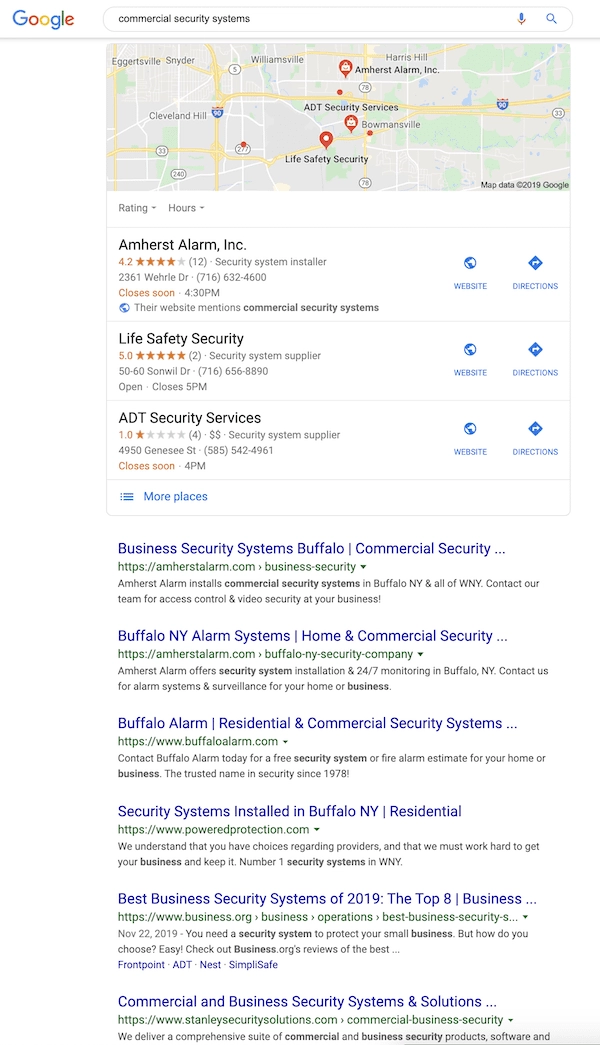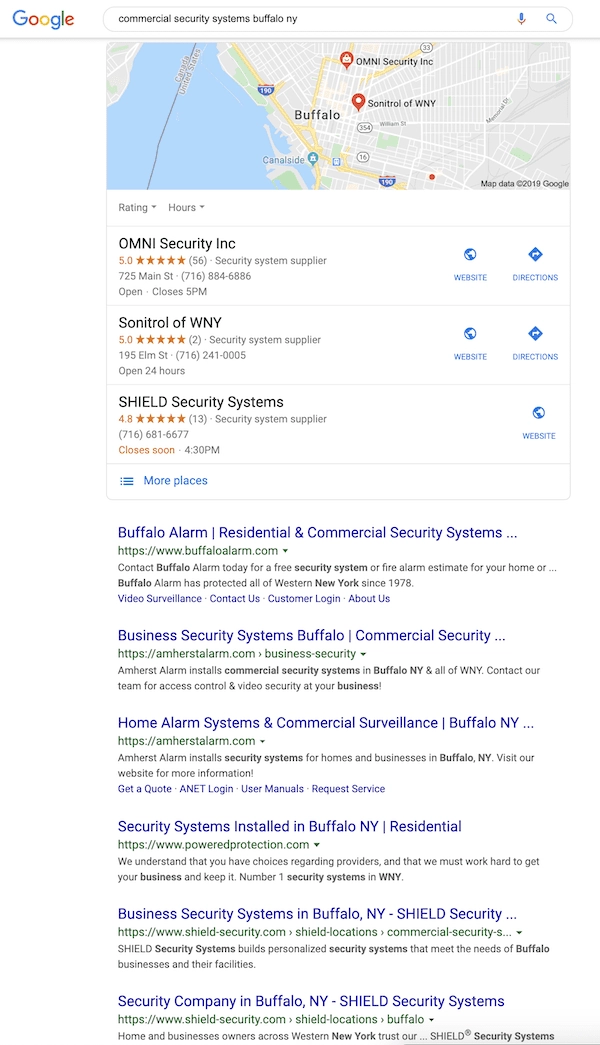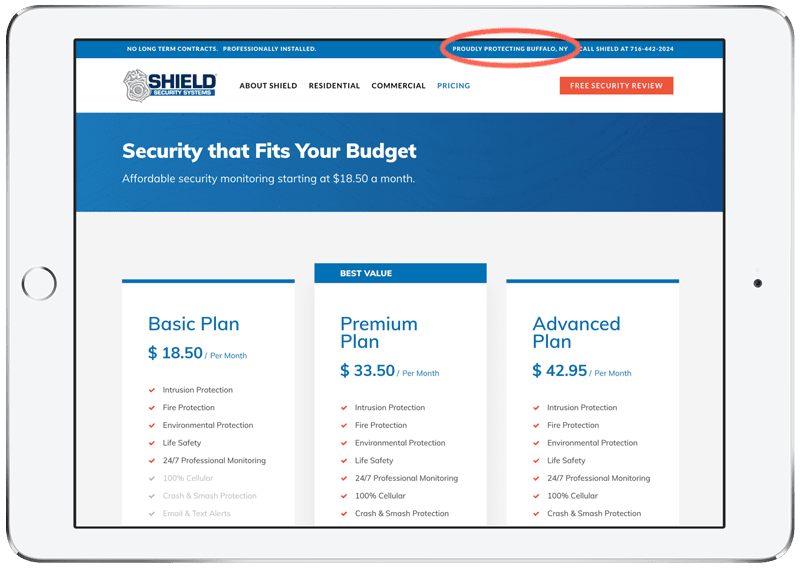People expect a personalized experience from the social media, digital ads, search results and websites where they spend time. Facebook, Instagram and Google use algorithms to deliver individualized results to their users. One factor that Google takes into account when delivering search results is the searcher’s geographic location.
In the past, people searched with phrases that included their location, such as “commercial security systems buffalo ny.” Now, users expect Google to understand certain searches as having local intent, without a specific location included in the query. You can see that Google delivers similar results for the phrases “commercial security systems” and “commercial security systems buffalo ny” when we search from the Parkway Digital office.


In fact, almost half of all Google searches are for local information. In an effort to personalize the results for these searches, Google includes a variety of features within the results. You’ll often see a local pack with businesses’ information at the top of the page. A website’s location pages, rather than their home page, will often rank well. Ads at the top and bottom of the results may also be specifically designed to connect with local searchers.
Google, as well as other digital giants like Facebook, use a lot of resources to personalize user experiences. People have come to expect them. It’s no longer an option to create a generic digital experience for your potential customers, especially when they live in cities very different from one another.
Customizing Users’ Website Experience
Home and business security is an inherently local industry. SHIELD Security Systems is no exception. A generic user experience would certainly disappoint a website visitor looking for local experts to protect their home or business. Nor would it be an accurate reflection of how SHIELD runs its business. The company prides itself on carefully vetting franchisees across the country who are not only security experts, but local residents.
To create a website that highlights SHIELD’s local offices, we started with MaxMind’s GeoIP technology. GeoIP uses IP address to determine where a website visitor is physically located. After determining a user’s city, the SHIELD website uses a series of rules to decide whether or not the location is within one of SHIELD’s service areas. If the website visitor is from one of these areas, the user experience is customized in a variety of ways.
To see this technology at work, you can test your own IP address on the MaxMind website.
For example, a potential customer in Buffalo will see a contact phone number beginning with our area code, 716. Copy throughout the website’s top-level pages dynamically changes to highlight the site visitor’s city. The user’s location also determines which pages are included in the menu, helping potential customers navigate to the pages that matter to them. This system is easy to update, to accommodate new franchises.

Geotargeting is included within the framework of SHIELD’s website in other ways as well. We created location-specific content, based on keyword research and past website user behavior, to match search intent and connect with local users. Each SHIELD location has a blog to highlight local happenings, relevant security news and team members. When a potential customer completes a form, their information goes to the specific office that would serve the lead.
Changes in User Behavior
Incorporating geotargeting using dynamic content and contact information resulted in a more seamless user experience than SHIELD’s previous solution. Updated, optimized pages created specifically to connect with potential customers in Buffalo currently enjoy a bounce rate almost 5% lower than previous Buffalo-centric pages. Potential customers visit 5% more pages after landing on these pages too.
Almost 50 pages on the SHIELD website received impressions in Google’s search results for the query “SHIELD Security” in the last three months. While the website home page displays most often, location pages for all of the business’ service areas have ranked on the first page of search results too. Pages optimized for users in Kansas City, Lehigh Valley and Mankato are also capturing more traffic from organic search results than their predecessors.